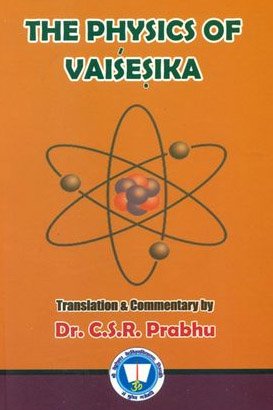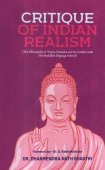Kanada, Kaṇāda, Kanāda, Kana-ada: 18 definitions
Introduction:
Kanada means something in Buddhism, Pali, Hinduism, Sanskrit, Marathi. If you want to know the exact meaning, history, etymology or English translation of this term then check out the descriptions on this page. Add your comment or reference to a book if you want to contribute to this summary article.
In Hinduism
Vaishnavism (Vaishava dharma)
Source: ISKCON Press: GlossaryKaṇāda (कणाद).—The propounder of Vaiśeṣika philosophy, which states that atoms are the original cause of the creation.

Vaishnava (वैष्णव, vaiṣṇava) or vaishnavism (vaiṣṇavism) represents a tradition of Hinduism worshipping Vishnu as the supreme Lord. Similar to the Shaktism and Shaivism traditions, Vaishnavism also developed as an individual movement, famous for its exposition of the dashavatara (‘ten avatars of Vishnu’).
Purana and Itihasa (epic history)
Source: Cologne Digital Sanskrit Dictionaries: The Purana IndexKaṇāda (कणाद).—A son of Somaśarman, an avatār of the Lord.*
- * Vāyu-purāṇa 23. 216.

The Purana (पुराण, purāṇas) refers to Sanskrit literature preserving ancient India’s vast cultural history, including historical legends, religious ceremonies, various arts and sciences. The eighteen mahapuranas total over 400,000 shlokas (metrical couplets) and date to at least several centuries BCE.
Vaisheshika (school of philosophy)
Source: Shodhganga: A study of Nyāya-vaiśeṣika categories (vaisesika)Kaṇāda (कणाद).—The founder of Vaiśeṣika is Kaṇāda. The name Kaṇāda has been variously interpreted. It is said that he had lived on grains of corn which are scattered in the field. It is also assumed that Kaṇāda is a nickname which he got because of his propagation of the theory of atoms. According to his name Kaṇāda, this system is also known as Kaṇāda Darśana.
Kaṇāda was born in a Kāśyapa family and he was the worshipper of Śiva. His another name was Ulūka. Therefore, this system is also known as Aulūkya Darśana or Kāśyapa Darśana. There is a confusion regarding the date of Kaṇāda. We do not find any direct information about the time when he flourished. According to Radhakrishnan, the date of the Vaiśeṣika system is about fifth century B.C. Mahadeo Rajaram Bodas maintains that the date of this system is about fifth or fourth century B.C. According to Nandalal Sinha, the date is between the sixth and the tenth century B.C.

Vaisheshika (वैशेषिक, vaiśeṣika) refers to a school of orthodox Hindu philosophy (astika), drawing its subject-matter from the Upanishads. Vaisheshika deals with subjects such as logic, epistemology, philosophy and expounds concepts similar to Buddhism in nature
Shaivism (Shaiva philosophy)
Source: Brill: Śaivism and the Tantric Traditions (philosophy)Kāṇāda (काणाद) refers to the “followers of Kaṇāda”, according to the Īśvarapratyabhijñāvivṛtivimarśinī 2.133.—Accordingly, “Having thus refuted the external [object as it is] understood by the followers of Kaṇāda [i.e., kāṇāda-saṃmata], [Utpaladeva now] refutes as well [the external object as it is] explained by the Vaibhāṣikas [in the sentence beginning with] ‘If, on the other hand’”.

Shaiva (शैव, śaiva) or Shaivism (śaivism) represents a tradition of Hinduism worshiping Shiva as the supreme being. Closely related to Shaktism, Shaiva literature includes a range of scriptures, including Tantras, while the root of this tradition may be traced back to the ancient Vedas.
General definition (in Hinduism)
Source: WikiPedia: HinduismKanada (कणाद) was a Hindu sage and philosopher who founded the philosophical school of Vaisheshika and authored the text Vaisheshika Sutra. He probably lived around the 2nd century BCE, while other sources claim he lived in the 6th Century BCE. It is believed that he was born in Prabhas Kshetra (near Dwaraka) in Gujarat, India.
His primary area of study was Rasavādam, considered to be a type of alchemy. He is said to have believed that all living beings are composed of five elements: water, fire, earth, air, ether. Vegetables have only water, insects have water and fire, birds have water, fire, earth and air, and Humans, the top of the creation, have ether—the sense of discrimination (time, space, mind) are one. He theorized that Gurutva (Hindi/Sanskrit for Gravity) was responsible for the falling of objects on the Earth. So, it can be said that he was the true inventor of formula of Gravity.[citation needed]
It was Kanada who originated the idea that anu (atom) was an indestructible particle of matter. An interesting story states that this theory occurred to him while he was walking with food in his hand. As he nibbled at the food in his hand, throwing away the small particles, it occurred to him that he could not divide the food into further parts and thus the idea of a matter which cannot be divided further came into existence. He called that indivisible matter anu, i.e. atom. He also stated that anu can have two states - Absolute rest and a State of motion.
Source: Digital Library of India: Nyāya-VaiśeṣikaKaṇāda is regarded as the founder of the Vaiśeṣika School. He is also said to be the author of the Vaiśeṣika-sūtras. But very little is known about the historicity of Kaṇāda. We know that his family name was Kāśyapa. Thus both Praśastapāda and Uddyotakara refer to him as Kāśyapa.
In the Jaina tradition, Kaṇāda is described as Ṣaḍ-ulūka, which is explained as “one who propounded the doctrine of six categories.” Accordingly, Mādhava in his Sarvadarśanasaṃgraha described the Vaiśeṣika system as Aulūkya philosophy.
In Buddhism
Theravada (major branch of Buddhism)
Source: Pali Kanon: Pali Proper NamesA teacher of philosophy, mentioned with Kapila, as teaching that the soul was limitless (na antava). UdA.339.
Theravāda is a major branch of Buddhism having the the Pali canon (tipitaka) as their canonical literature, which includes the vinaya-pitaka (monastic rules), the sutta-pitaka (Buddhist sermons) and the abhidhamma-pitaka (philosophy and psychology).
Languages of India and abroad
Marathi-English dictionary
Source: DDSA: The Molesworth Marathi and English Dictionarykānaḍā (कानडा).—a (kāna) That turns a deaf ear unto; i.e. that turns himself away from, or sets himself against. 2 (Commonly kānavaḍā) Lying on a side. v asa, nija, paḍa, ṭhēva.
--- OR ---
kānaḍā (कानडा).—a (karṇāṭa S) Relating to the Carnatic.
--- OR ---
kānaḍā (कानडा).—m A Rag or musical mode. See rāga.
--- OR ---
kānāḍa (कानाड).—n (kāna & śālā or sthaḷa) The hollow of the outer end of the face along the ear: also simply a side of the face. Used as kāṇṭhāḍa & kānaphaṭa.
Marathi is an Indo-European language having over 70 million native speakers people in (predominantly) Maharashtra India. Marathi, like many other Indo-Aryan languages, evolved from early forms of Prakrit, which itself is a subset of Sanskrit, one of the most ancient languages of the world.
Sanskrit dictionary
Source: DDSA: The practical Sanskrit-English dictionaryKaṇāda (कणाद).—
1) Name of a philosopher; see under कण (kaṇa).
2) A goldsmith.
Derivable forms: kaṇādaḥ (कणादः).
--- OR ---
Kaṇāda (कणाद).—m. a nickname given to the philosopher who propounded the Vaiśeṣika system of philosophy (which may be said to be a 'doctrine of atoms').
Derivable forms: kaṇādaḥ (कणादः).
Kaṇāda is a Sanskrit compound consisting of the terms kaṇa and ada (अद). See also (synonyms): kaṇabhakṣa, kaṇabhuj.
Source: Cologne Digital Sanskrit Dictionaries: Shabda-Sagara Sanskrit-English DictionaryKaṇāda (कणाद).—m.
(-daḥ) 1. The name of a Muni, also called Kasyapa: the author of the Vaisheshika philosophy. 2. A goldsmith. E. kaṇa a little, and ad to eat, referring to the abstemiousness of the saint; or ādā to take, alluding the proverbial dishonesty of the artificer.
Source: Cologne Digital Sanskrit Dictionaries: Benfey Sanskrit-English DictionaryKaṇāda (कणाद).—m. The name of a sage, the founder of the Vaiśeṣika or atomic school of philosophy.
Source: Cologne Digital Sanskrit Dictionaries: Cappeller Sanskrit-English DictionaryKaṇāda (कणाद).—[masculine] [Name] of the author of the Vaiśeṣika philosophy.
Source: Cologne Digital Sanskrit Dictionaries: Aufrecht Catalogus CatalogorumKaṇāda (कणाद) as mentioned in Aufrecht’s Catalogus Catalogorum:—Vaiśeṣikasūtra. See Kāṇāda.
Source: Cologne Digital Sanskrit Dictionaries: Monier-Williams Sanskrit-English Dictionary1) Kaṇāda (कणाद):—[from kaṇa > kaṇ] a m. ‘atom-eater’, Name given to the author of the Vaiśeṣika branch of the Nyāya philosophy (as teaching that the world was formed by an aggregation of atoms; he is also called Kāśyapa, and considered as a Devarṣi; See also ulūka), [Prabodha-candrodaya; Sarvadarśana-saṃgraha] etc.
2) [v.s. ...] a goldsmith (= kalāda), [cf. Lexicographers, esp. such as amarasiṃha, halāyudha, hemacandra, etc.]
3) b See under kaṇa
4) Kāṇāda (काणाद):—[from kāṇabhuja] mf(ī)n. composed by or relating to Kaṇāda.
5) [v.s. ...] m. a follower of Kaṇāda, [Śaṃkarācārya]
6) Kānaḍā (कानडा):—f. a particular Rāgiṇī.
7) Kānada (कानद):—m. Name of a son of Dhīmaraṇa.
Source: Cologne Digital Sanskrit Dictionaries: Yates Sanskrit-English DictionaryKaṇāda (कणाद):—(daḥ) 1. m. The name of a sage, author of the Vaisheshika philosophy; a goldsmith.
[Sanskrit to German]
Sanskrit, also spelled संस्कृतम् (saṃskṛtam), is an ancient language of India commonly seen as the grandmother of the Indo-European language family (even English!). Closely allied with Prakrit and Pali, Sanskrit is more exhaustive in both grammar and terms and has the most extensive collection of literature in the world, greatly surpassing its sister-languages Greek and Latin.
Kannada-English dictionary
Source: Alar: Kannada-English corpusKaṇāda (ಕಣಾದ):—
1) [noun] (masc.) a worker in gold or silver; a manufacturer of gold or silver articles; a goldsmith.
2) [noun] a nickname to the sage who propounded the ವೈಶೇಷಿಕ [vaisheshika] system of philosophy (known as 'doctrine of atoms').
--- OR ---
Kānaḍā (ಕಾನಡಾ):—[noun] (mus.) a mode, in Karnaṭaka system, having all the seven notes in both ascending and discending orders, but having a mutative course while descending, derived from Kharaharapriya.
Kannada is a Dravidian language (as opposed to the Indo-European language family) mainly spoken in the southwestern region of India.
See also (Relevant definitions)
Partial matches: Ada, Kaana, Kana, Ata.
Starts with: Kanada muni, Kanada tarkavagisha bhattacarya, Kanada tarkavagishabhattacarya, Kanada-aki-no-kirin-so, Kanadanyayabhushana, Kanadara, Kanadarahasya, Kanadarahasyasamgraha, Kanadarava, Kanadasamgrahavyakhya, Kanadasamhita, Kanadasiddhantacandrika, Kanata, Kanatai, Kanatam, Kanatamatam, Kanatan, Kanatar, Kanataran.
Ends with: Culla Kokanada, Darabari Kanada, Ekanada, Jhillikanada, Kakanada, Kanata, Kokanada, Maykanada, Mekanada, Nayakikanada, Raktakokanada.
Full-text (+126): Vaisheshika, Kanabhaksha, Ardhavainashika, Kanabhuja, Kanabhuj, Nagnanilapatadika, Dashalakshani, Nayakikanada, Bagesari, Nandiniputra, Avasphurjathu, Abhava, Kanada-aki-no-kirin-so, Darabari Kanada, Vaisheshika-sutra, Upasmriti, Avakshepana, Kanada muni, Kausi, Kanadarahasyasamgraha.
Relevant text
Search found 71 books and stories containing Kanada, Kaṇāda, Kanāda, Kānaḍā, Kānāḍa, Kana-ada, Kaṇa-ada, Kāṇāda, Kānada; (plurals include: Kanadas, Kaṇādas, Kanādas, Kānaḍās, Kānāḍas, adas, Kāṇādas, Kānadas). You can also click to the full overview containing English textual excerpts. Below are direct links for the most relevant articles:
The Tattvasangraha [with commentary] (by Ganganatha Jha)
Verse 547-548 < [Chapter 10 - The Examination of the First Category—‘Substance’]
Verse 1738-1744 < [Chapter 20 - Examination of Syādvāda (doctrine)]
Verse 2534 < [Chapter 24b - Arguments against the reliability of the Veda (the Revealed Word)]
Brahma Sutras (Shankaracharya) (by George Thibaut)
II, 3, 50 < [Second Adhyāya, Third Pāda]
II, 3, 51 < [Second Adhyāya, Third Pāda]
II, 2, 15 < [Second Adhyāya, Second Pāda]
Philosophy of Charaka-samhita (by Asokan. G)
Attribute (guṇa) [in Charaka philosophy] < [Chapter 2 - Fundamental Categories]
Fundamental Categories (padārtha or tattva) [in Charaka philosophy] < [Chapter 2 - Fundamental Categories]
The Concept of Sharira as Prameya (by Elizabeth T. Jones)
Classification of Śarīra < [Chapter 5]
The Vaiśeṣika Philosophy < [Chapter 1]
Concept of God < [Chapter 1]
A History of Indian Philosophy Volume 1 (by Surendranath Dasgupta)
Part 3 - Does Vaiśeṣika represent an Old School of Mīmāṃsā? < [Chapter VIII - The Nyāya-Vaiśeṣika Philosophy]
Part 7 - The Vaiśeṣika and Nyāya Literature < [Chapter VIII - The Nyāya-Vaiśeṣika Philosophy]
Part 4 - Philosophy in the Vaiśeṣika sūtras < [Chapter VIII - The Nyāya-Vaiśeṣika Philosophy]
Padarthadharmasamgraha and Nyayakandali (by Ganganatha Jha)
Introductory—Benediction < [Chapter 1 - Introduction]
Text 6 < [Chapter 2 - Enumeration and Classification of Categories]
Text 5 < [Chapter 2 - Enumeration and Classification of Categories]
Related products


